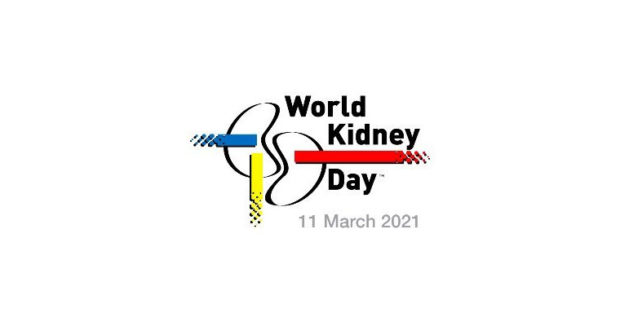
Easy and affordable access to Peritoneal Dialysis under PMNDP facilitates ‘Living well with kidney disease’
Team Udayavani, Mar 11, 2021, 5:38 PM IST

Twitter Image
Bengaluru: One in 10 people in India is said to be suffering from some form of chronic kidney disorder (CKD), of which 2,20,000 new cases of kidney failure (stage V CKD) are reported in India each year, severe enough to need dialysis. Chronic kidney disease is a severe public health problem so much so that kidney failure is projected to be the fifth leading cause of death worldwide by 2040!
On this World Kidney Day, keeping in line with the theme of ‘Living Well with Kidney” it would be pertinent to spread the much-required education and awareness on how patients suffering from kidney failure can live a healthy life, maintain their role and social functioning, whilst maintaining some semblance of normality and a sense of control over their health and wellbeing.
One of the major hurdles for such patients is the lack of access to dialysis, which has long been a reality owing to critical shortages of dialysis equipment and staff especially during the COVID-19 pandemic. This has made the entire process even more challenging for them. However, the Indian government’s decision to include Peritoneal Dialysis (PD), an advanced and convenient technology for home-based dialysis treatment under the Pradhan Mantri National Dialysis Programme (PMNDP) in 2016 has been helping kidney failure patients to have affordable and easy access to this home-based treatment option. With the inclusion of PD in PMNDP, the government has brought down the overall cost of treatment by efficiently leveraging the resources, which in turn will help all the kidney failure patients to have easy access to the services.
‘’This move by the government was taken in a bid to make dialysis accessible to all kidney patients in the country. Notwithstanding the right intention behind the move, the policy lacks tangible and cohesive adoption plan to address problems related to chronic kidney disease (CKD) in the country. Today, the policy is incorporated only by four Indian states. Considering the burgeoning CKD numbers, conventional treatment options to treat kidney patients alone cannot suffice. It is imperative to understand the crucial role played by alternate methods such as PD in giving respite to patients,” said Dr.E.Mahesh Prof and Head Dept of Nephrology M.S.Ramaiah medical college, Bangalore
PD frees patients from the multiple visits to the clinics every week as applicable in the conventional Haemodialysis (HD) and can be performed at home without any specialized equipment. In fact, it can be easily carried out at home by the patient, often without help. Contrary to a HD session, PD is painless and needle-less procedure that allows the patient to lead a better quality of life even with the chronic ailment. Moreover, PD is suitable even for children below five years as it does not stop them from pursuing their school or other normal activities.
Suresh Sharma a patient (name changed) said,’’ When I was introduced to Peritoneal Dialysis (PD), I was confused about handling it at home all by myself. However, when I realized that I could carry PD along with remote patient monitoring (RPM) system that records my dialysis condition simultaneously, I gained confidence. RPM system saves data and transmits it automatically to a safe platform which can be accessed by my healthcare provider. Considering the nature of end stage renal disease, patients need different settings per therapy session. When the doctor analysis my treatment history and notices any issue, he can remotely customize my dashboard and recommend changes’’
Nevertheless, private insurance companies’ latest decision of including PD under the ambit of insurance policies will help India in making renal care affordable for all. There is an increasing dialysis demand of 31 percent in the county. Including PD in insurance policies will act as a driving force for more people to opt home-based dialysis. This would prevent people from discontinuing the dialysis due to financial crunch. Today, about two-third of 70 to 80 percent kidney patients in India withdraw from dialysis and succumb to death due to financial crunch and around 60 million dialysis patients are pushed under the poverty line due to exorbitant medical bills
Udayavani is now on Telegram. Click here to join our channel and stay updated with the latest news.
Top News

Related Articles More
People single all their lives might have low life satisfaction: Study

Drinking tea, coffee linked to lower risk of head and neck cancer: Study

Study shows how brain chemicals control eating, could help develop improved obesity drugs

‘Faster walkers’ had significantly lower risk of diabetes, hypertension: Study

World Meditation Day 2024: Celebrating inner peace and well-being
MUST WATCH
Latest Additions

Udupi: Gita Yajna held at Sri Krishna Matha

Space for Manmohan Singh’s memorial, Congress playing ‘cheap politics’: Nadda

Middleman held in connection with bribery case involving ED official: CBI

2 detained under PSA, PIT-NDPS Act in J&K’s Samba, Jammu

PM Modi calls Gukesh an embodiment of calmness and humility
Thanks for visiting Udayavani
You seem to have an Ad Blocker on.
To continue reading, please turn it off or whitelist Udayavani.

















